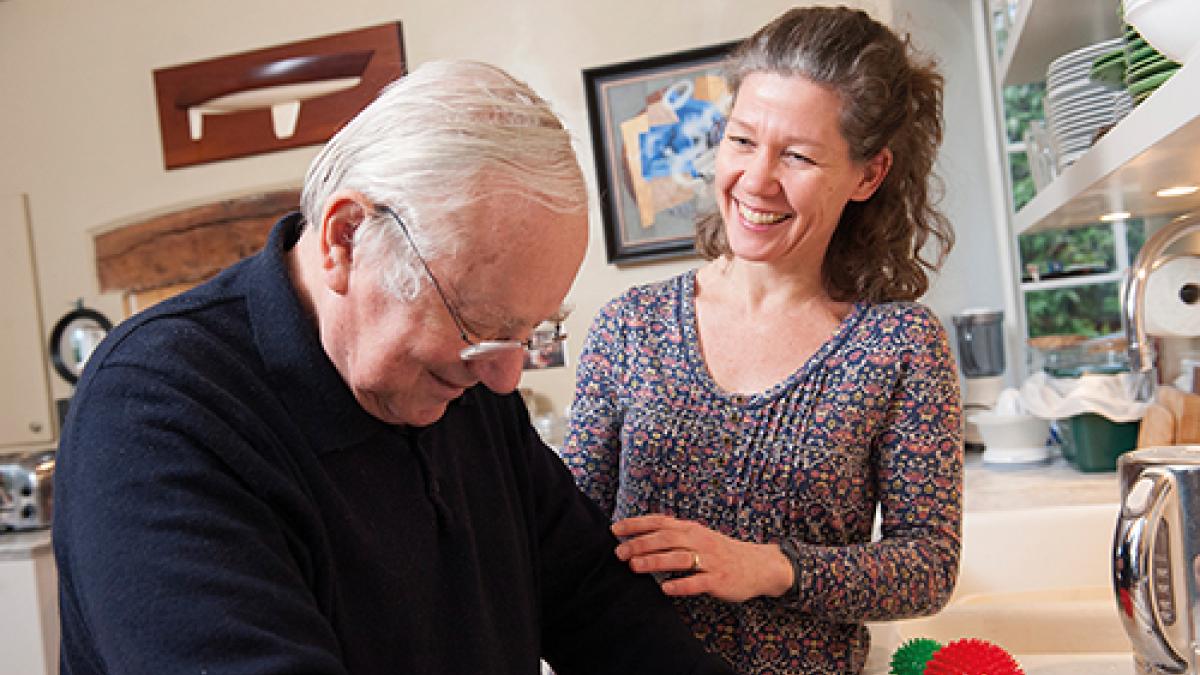The lavish Oscars ceremony may grab the headlines, but many actors have to juggle second careers to make a living, as physiotherapist Cheryl Anderson reveals.

One woman, two careers
How did you get into acting?
My dad was a stage manager so I grew up with theatre in my blood. My mum was a ballet teacher and I danced from the age of five. It was instilled in me that I needed a second career to fall back on so I went to university, discovered physiotherapy and loved it. Ten years later and living in London, I finally realised my dream of training professionally as an actor at Mountview Theatre School.
What is your latest role?
I am in episode four of the new series of Charlie Brooker’s Black Mirror on Netflix. I have a small role in San Junipero. You have to watch for 40 minutes before you see me but then I am there for the last 20!
Have you always combined acting with physiotherapy?
I danced, acted and choreographed my way through university – even getting my physio classmates to join the casts of productions I was doing. I continued doing amateur dramatics here in the UK until I went to Mountview. Luckily, I am passionate about both of my careers. I don’t think you could do either job without that passion. Both are incredibly rewarding but also very hard work. For me, each career has enabled me to stick with the other one. My physio work means I can do something enjoyable that pays the bills between acting jobs. My acting work gives me a creative release from the demands of physio.
How do you juggle the demands?
I am a specialist neurological physiotherapist with my own domiciliary practice and a particular focus on exercise for health and wellbeing. I fell into private work because I needed to have flexibility to attend auditions or take an acting job which, more often than not, happens at the last minute. My Black Mirror job started with a phone call on a Wednesday evening from my agent and by the following Thursday I was on set doing my first day of filming. Two weeks later I flew off to Cape Town for two more days of filming. You have to have control of your own diary to be able to be that flexible.
Has being a physio been useful?
The jobs definitely complement each other. Physiotherapy is a selfless job and acting can be very self-focused. When I’m feeling a bit burnt out from physio, immersing myself in an acting job is fun and reviving. There is also a large overlap of skills. My voice is one of my most important assets. As an actor, I use my voice to draw an audience into the journey of a character, to understand their story. As a physio, I use my voice to educate my patients, to guide and encourage them. I help them understand what is happening to them so they can self-manage. I think my acting experience has made me better at this communication. My presentation skills have also benefited.
Of course, all physios have great body awareness – that’s what we’re trained for. I think my dancing and acting training give me even greater skills to both appreciate what my patients are experiencing physically and find a variety of ways to help them re-learn functional, low-effort movement.
Most importantly, empathy is an essential skill in the tool box of both actors and physios. As an actor I have to empathise with my character to portray a truthful, three-dimensional person. I think the same holds true for a physiotherapist. We have to understand who our patient is, apart from being “a stroke”.’
- Cheryl Anderson is an actor and a physiotherapist
Author
Cheryl Anderson actor and physiotherapistNumber of subscribers: 3
